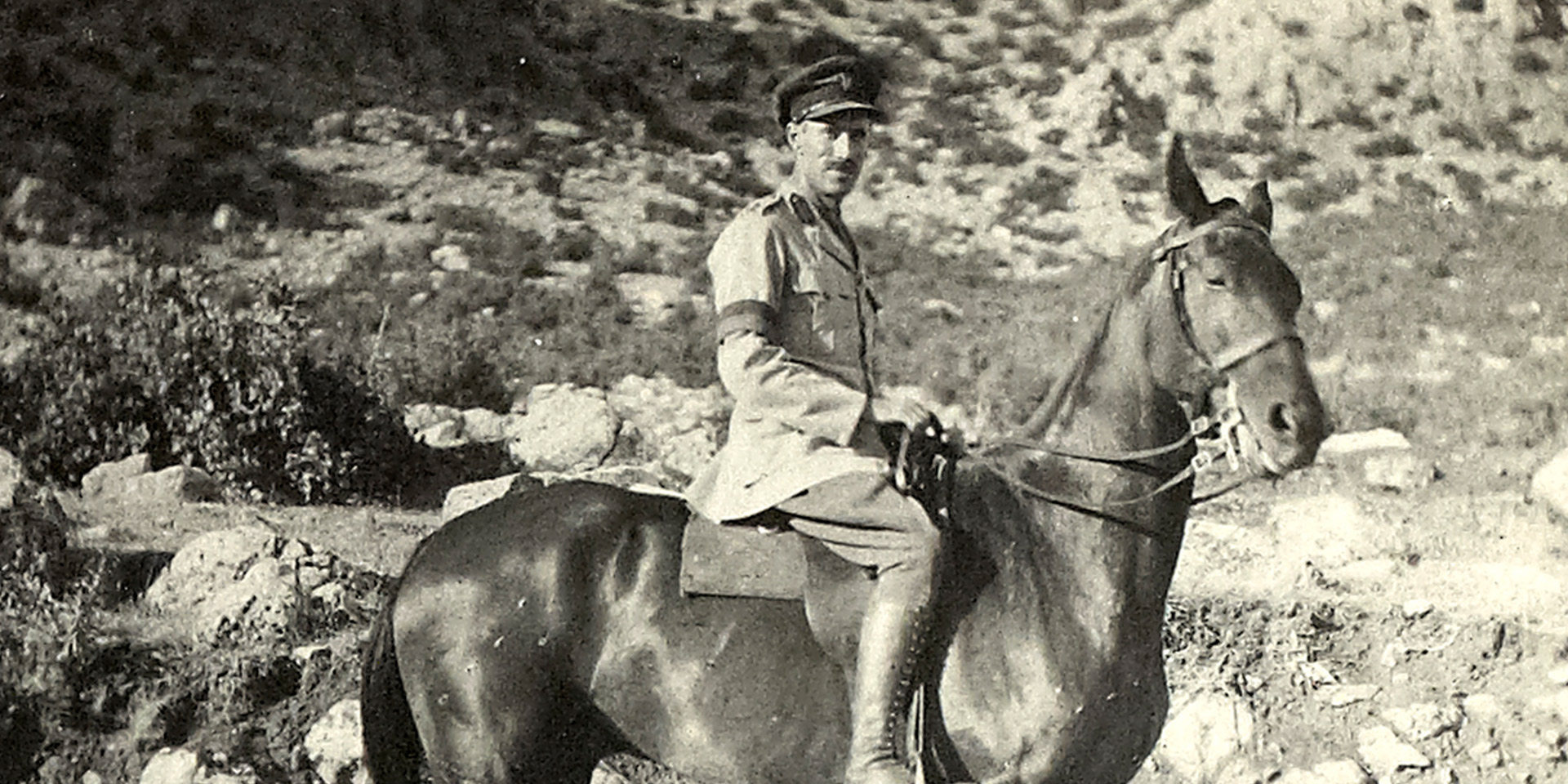Aberdeenshire soldier’s story of courage and endurance
Today (23 January 2018) the National Army Museum is publishing the story of Captain Leith-Ross. This comes exactly 100 years after a precursor Special Forces unit, called Dunsterforce, was sent on a daring secret mission to northern Persia and the Caucasus to safeguard Baku’s oil from the Turks.
The unit was intended to organise local groups in these areas into an effective anti-Turkish and anti-Bolshevik force while simultaneously securing Baku’s oil refineries for the Allies. Despite often hostile treatment in lands racked by famine, war, genocide, and civil unrest, Dunsterforce also provided relief to affected areas and trained local militias to defend their villages.
This work required men of particularly tough character and strong leadership. Major-General Lionel Dunsterville, whom the unit was named after, stated: ‘All were chosen for special ability, and all were men who had already distinguished themselves in the field. It is certain that a finer body of men have never been brought together.’
Leith-Ross’ intelligence experience, after years of producing reports for the British High Command in Mesopotamia, made him an ideal recruit for Dunsterforce and he was seconded in January 1918. With great skill, Leith-Ross and the unit successfully navigated cars, vans and armoured vehicles across difficult Persian terrain.
But after being blocked en route to Baku by hundreds of armed Bolsheviks and other revolutionaries, they returned to Hamadan in Persia in late February 1918. Here they engaged in famine relief work and civil construction projects for the next few months. Leith-Ross also recorded the difficulties which occurred when providing aid to Assyrians resisting the Turks: ‘We sent them thousands of rifles and much ammunition. It was very difficult to get it to them across country.’
After being reinforced, Dunsterforce eventually made it to Baku in July 1918. Despite consistent efforts, Leith-Ross and Dunsterforce struggled to bolster the 7,000 Armenian, Assyrian and Russian volunteers defending the city. During the Battle of Baku, from August to September 1918, Leith-Ross noted his frustrations during one engagement when ‘the Armenians instead of holding on to the Binagardy position fled at the first attack’.
Dunsterforce failed to secure the port of Baku and its oil refineries, and was unable to establish any base for recruiting and directing irregular forces. The unit was evacuated back to northern Persia in September 1918.
The resources available to Dunsterville, both in terms of men and equipment, were insufficient to accomplish the mission's main goal of holding oil-rich Baku against the Turks. The British also struggled to mobilise the residents of Baku who were too preoccupied with infighting to mount a united defence.
Although the unit did not achieve all its objectives, the operations undertaken by Dunsterforce exhibited the kind of courage and endurance that is often associated with Special Forces missions. The conditions in which they travelled and fought were extreme with temperatures topping 50C and plummeting to -40C.
The War Office disbanded the unit on 22 September 1918 and most of the surviving men returned to their original units. Prime Minister David Lloyd George believed Dunsterforce kept the Turks and Germans from acquiring much-needed oil for six crucial weeks in August and September 1918, a period in which the First World War was decided.
Notes to Editors:
For more information, please contact the National Army Museum press office at pr@nam.ac.uk or 020 7881 2433.
About Captain William Leith-Ross
William Leith-Ross (1884-1960) was born on 14 November 1884 at Meerut in India. He was the son on John Leith Ross, laird of Arnage Castle near Ellon in Aberdeenshire, and Frances Forbes Lamond. He had one brother, John, and a sister, Elena Violet.
After completing his education, William was commissioned as a second lieutenant on the Indian Army’s Unattached List in January 1904. After his service in the Dunsterforce, Captain Leith-Ross (a keen tennis player) reached the 1918 final of the Mesopotamian open tennis championships where he lost to Norman Brookes, the 1907 and 1914 Wimbledon champion.
In 1936 Leith-Ross retired as a lieutenant-colonel after 32 courageous years in service. He returned to Scotland where he was appointed Inspector of Prisons and subsequently Director of Prisons and Borstals. He retired from the prison service in July 1950.
Lieutenant-Colonel Leith-Ross died on 5 October 1960 at Aberdeen.
National Army Museum
The National Army Museum is the leading authority on the history of the British Army. Founded in 1960 by Royal Charter and established for the purpose of collecting, preserving and exhibiting objects and records relating to the Land Forces of the British Crown it is a museum that moves, inspires, challenges, educates and entertains. The Museum seeks to tell the story of the British Army, the personal experiences of the soldiers who have served in it and to connect the British public and its army demonstrating how the role of the army and its actions are still relevant today.
Heritage Lottery Fund
Thanks to National Lottery players, we invest money to help people across the UK explore, enjoy and protect the heritage they care about - from the archaeology under our feet to the historic parks and buildings we love, from precious memories and collections to rare wildlife.
For more information, please contact Katie Owen, HLF press office on Tel: (020) 7591 6036 out of hours mobile: 07973 613820.






